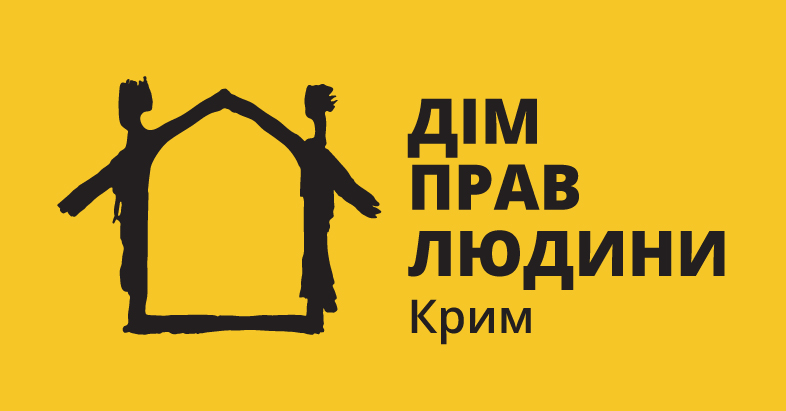ZMINA brought up topics of enforced disappearance and persecution at the OSCE Human Dimension event
On 18 and 19 March 2024, the Human Rights Centre ZMINA together with the other member organisations of the Human Rights House Crimea (Crimean Human Rights Group, Centre of Civil Education “Almenda” and Regional Center for Human Rights) joined an OSCE Human Dimension event in Vienna. It was co-organized by the Human Rights House Foundation and the Netherlands Helsinki Committee and gathered over 50 diplomats from 28 countries.
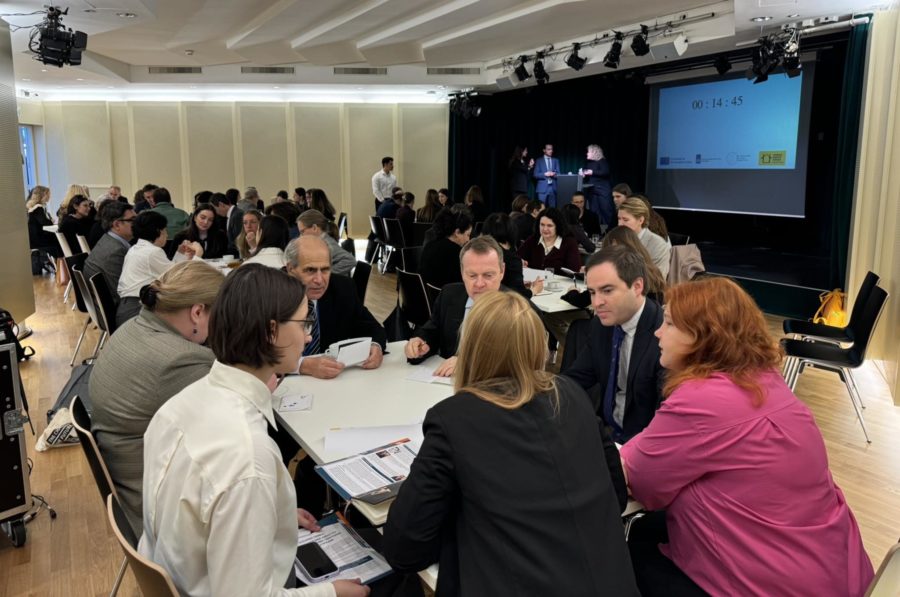
Not only the Ukrainian civil society took part in the event but representatives from Armenia, Azerbaijan, Belarus, Georgia, Kazakhstan and Türkiye provided a series of one-on-one briefings on emerging and ongoing human rights trends in their countries, as well as recommendations to states.
“From military conflicts to severe crackdowns against civil society, several of the countries across the OSCE region face a variety of daunting human rights challenges. That’s why exchanges like these are critical, so that states can be briefed directly, and receive perspectives and recommendations from human rights defenders working on the ground,” highlighted Nora Wehofsits, International Advocacy Officer of the Human Rights House Foundation.
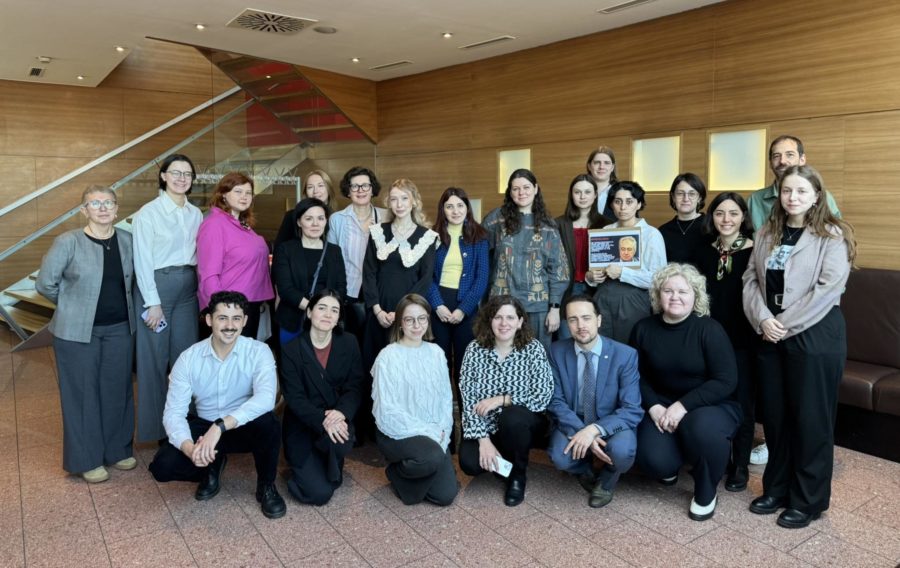
ZMINA’s International Advocacy Officer Tetiana Zhukova recalled that Ukrainian human rights defenders raised issues of absence of freedom of speech in the temporarily occupied Crimea, massive persecution of activists and media, and the practice of enforced disappearances, arbitrarity detentions, and torture of civilians.
“The first case of enforced disappearance and extrajudicial execution happened to Reshat Ametov — a Crimean Tatar activist who went on a single picket against the occupation in March 2014. He was abducted and, later, found murdered with traces of torture on his body,” told Zhukova. “The same patterns of the abduction of the active population were identified in documented cases in the newly occupied territories, which indicates a systematic and methodical policy of the Russian Federation aimed at the intimidation of the local residents and forcing them to cooperate.”
“Depending on the participants of each round, we could tailor our presentation. For instance, in the case of presenting to the group with the representative from Spain – we could raise the case of Mariano García Calatayud, a Spanish citizen who was providing humanitarian assistance in Ukraine and who is now in [Russian] captivity,” added ZMINA’s Enforced Disappearances Project Researcher Nataliian Okotnikova. “We also shared a letter requesting international support from the parents of Mariana Checheliuk, a 24-year-old investigator from Mariupol, who has spent two years in Russian captivity without any charges against her, has been tortured and is being denied necessary medical help.”
Human rights defenders welcomed the launch of the OSCE Moscow Mechanism which will help to bring the topic of civilian hostages to the international level and emphasised the need to investigate the cases of enforced disappearances and arbitrary detentions since 2014.

In addition, the human rights defenders raised the topics of indoctrination and deportation of Ukrainian children by Russia and looted cultural heritage from the occupied territories.
“There are currently 1,610,970 minors living in the occupied territories, of which at least 615,723 are school-age children who are subjected to indoctrination and militarization through the education system daily. We see that the main goal is the complete destruction of Ukrainian identity and the creation of a mobilisation reserve of Ukrainian children. In order to reduce the dynamics of the growth of violations, it is important to bring perpetrators to justice and to work on the implementation of reintegration programs to return the future to these children,” told Mariia Sulialina from the Centre of Civil Education “Almenda”.
“There is insufficient coverage of crimes against cultural heritage and identity committed by Russians in Ukraine for more than 10 years. These include intentional destruction of cultural heritage; illegal archaeological excavations; expropriation and looting of cultural values; transfer of valuables to the Russian Federation with subsequent illegal export abroad,” stated Daryna Pidhorna from the Regional Center for Human Rights.
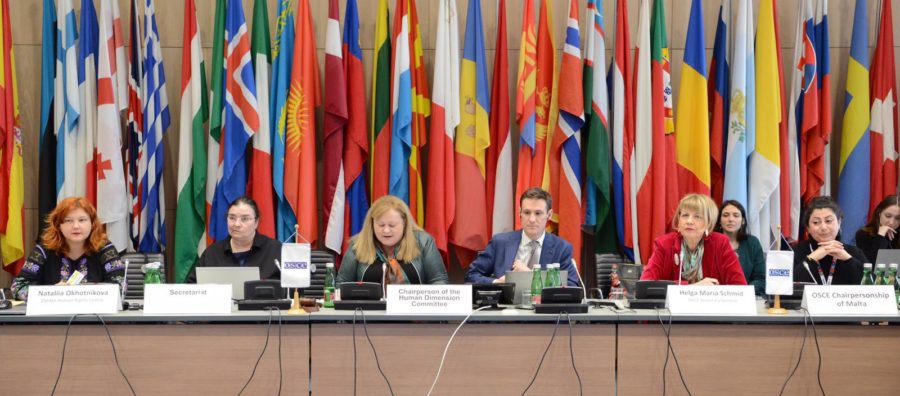
Moreover, Nataliia Okhotnikova joined an OSCE Human Dimension Committee’s discussion about the violence against women:
“Ukrainian women and girls, in particular, women human rights defenders, volunteers, journalists, local communities representatives, are under permanent threat of abductions, illegal arrests, and persecution both online and offline due to the ongoing Russian full-scale invasion of Ukraine. In 2014, some of them fled from their homes in Crimea, Donetsk and Luhansk regions because of threats and leakage of personal data and pictures. In 2022, the situation with human rights violations deteriorated dramatically and there is no safe place in Ukraine now. Ukrainian women witness and experience tortures, including sexualised ones, but never step back from their professional and public responsibilities.”
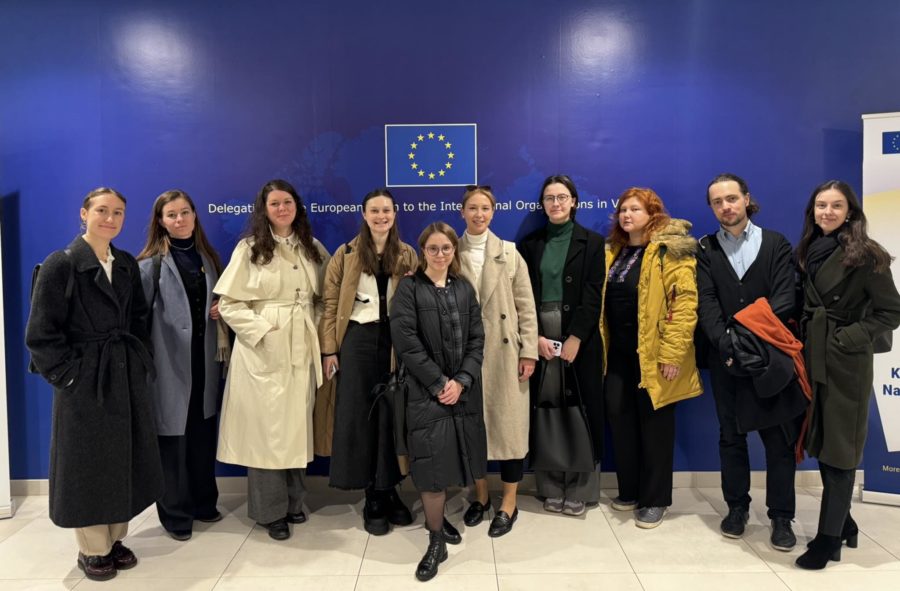
The Ukrainian civil society delegation also drew the attention of international society to the human rights violations, war crimes and crimes against humanity committed by Russians in Ukraine during the meetings with the Delegations of the EU, Ireland, France, Poland, the Czech Republic, and Finland to the OSCE
This article was first published by the Human Rights Centre ZMINA.
